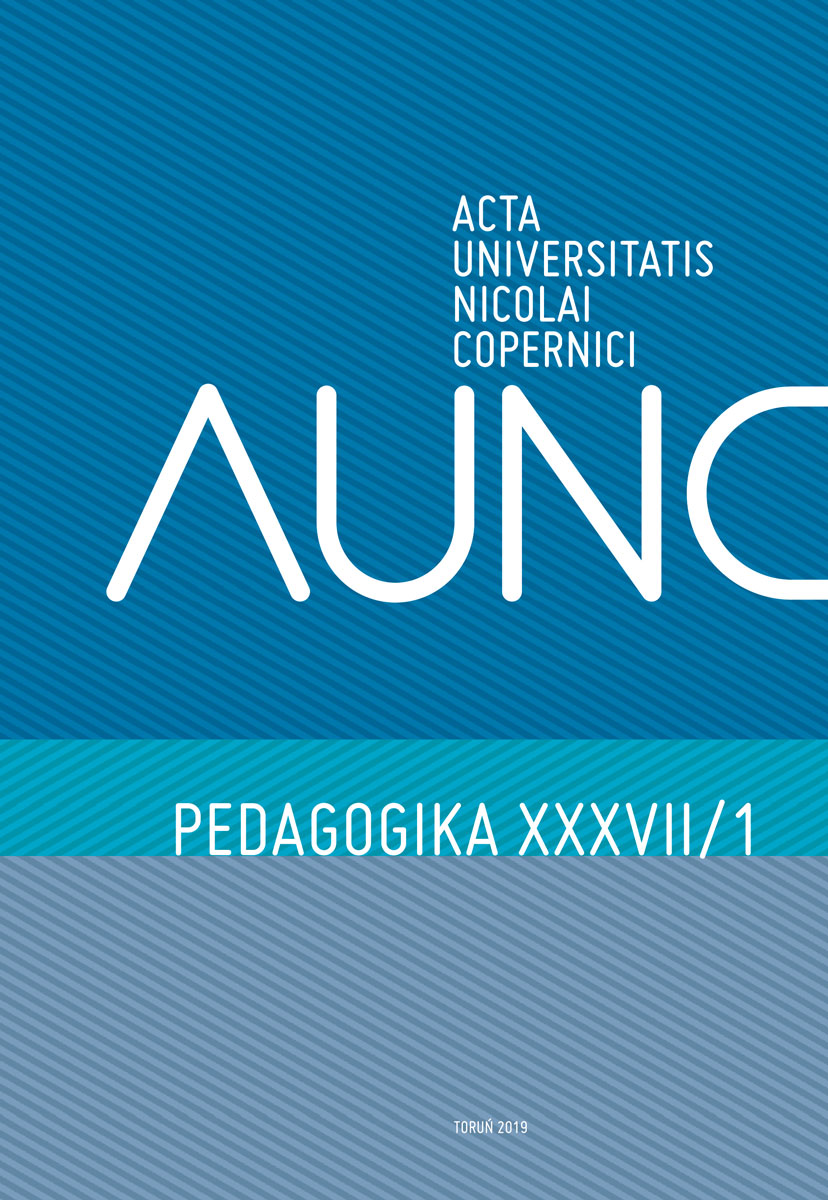Constructivistic didactics in physics: implementations
DOI:
https://doi.org/10.12775/31578Keywords
innovative didactics, constructivism, cognitivism, interactive teachingAbstract
Cognitive strategies in teaching physics in Poland were first introduced in late 90’s. The first exhibition in the interactive form, was devoted to interactive physics - "Physics and Toys" in 1998 and "Contemporary Physics" in 2003 (founded at the University of Pomerania in Slupsk). Later, more comprehensive, interdisciplinary exhibitions were created at the Nicolaus Copernicus University. The success of this teaching method exceeded our expectations. We discuss the principles and practical methods of innovative didactics based on constructivist and cognitive theories. The two main paradigms of this teaching method are based on constructing the knowledge and competences of students (listeners, students) in interactive narrative and using real teaching subjects that can be pulled out of pocket. We call these concepts hyper-constructivism and neo-realism.
References
Berger P. L., Luckmann T., The Social Construction of Reality. A Treatise in the Sociology of Knowledge, Ancor Books, 1966.
Bruner J., Actual Minds, Possibile Worlds, Harvard University Press, Cambridge (MA), 1986.
Campbell S., Ludic practice: the case for students play in university museums. Spark: UAL Creative Teaching and Learning Journal, Vol.4./ issue 1 (2019) pp. 59-70.
Chomsky N., Language and Mind, Cambridge University Press, Cambridge, 2006.
Crispiani P., Didattica cognitivista, Armando Editore, Roma, 2004.
Hewitt P., Conceptual Physics, Prentice Hall School Group, Upper Saddle River, NJ, 1997.
Heywood D., Parker J., The Pedagogy of Physical Science, Spinger, Dordrecht, 2010, p. 32.
Kamińska A., Karwasz G., Rola wystaw interaktywnych w nauczaniu fizyki, (Role of interactice exhibitions in teaching phyics), Fizyka w Szkole, 3/2008, p. 44.
Karwasz G.P., Karbowski A., Hyper-konstruktywizm w nauczaniu fizyki. Tożsamość indywidualna i kompetencje społeczne. (Hyper-constructivism in in teaching physics. Individual identity and social competences), Acta Univ. N. Copernici, Pedagogika XXXII/2016 No. 424, pp. 177-202.
Karwasz G., Cognitive Didactics: Hyper-Constructivistic Knowledge Building, in: Virtuality and Education – Future Prospects, ed. D. Siemieniecka, Wyd. Adam Marszałek, Toruń, 2019, pp. 9-22.
Karwasz G., Astronomia dla dzieci, (Astronomy for children), Publicat, Poznań, 2016.
Karwasz G., Czy świat się kręci w prawo? Fizyka i zabawki, (Does the Word turn rigth? Physics and Toys), Postępy Fizyki, Zeszyt 60B, 1999, p. 97.
Karwasz G.P., Zecca A., Brusa R.S., Pliszka D., Application of positron annihilation techniques for semiconductor studies, J. Alloys and Compounds, 382 (2004) p. 24.
Karwasz G., Kruk J., Idee i realizacje dydaktyki interaktywnje. Muzea i centra nauki. Toruń: Wydawnictwo Naukowe Uniwersytetu Mikołaja Kopernika, 2011.
Karwasz G., Sadowska M, Rochowicz K., Toruński poręcznik do fizyki. I Mechanika. (Toruń’s tex-book for physics) Sci. Ed. UMK, Toruń, 2010.
Karwasz G., Scienza e Fede. Un breve manuale. Aracne Editrice, Roma, 2019.
Karwasz G., Służewski K., Kamińska A., Constructivistic paths in teaching physics: from interactive experiments to step-by-step textbooks, in: Problems of Education in the 21st Century, Vol. 64, 2015, pp. 6-23.
Nitta H., Takatsu K., The Manga Guide. Physics. Trend-Pro. Co., Ltd., San Francisco, 2009.
Okoniewska A., Przedmioty codziennego użytku i zabawki w dydaktyce fizyki – zjawiska falowe, (Objects of every-day use and toys in didactics of physics – wave phenomena), Graduate thesis, WSP Słupsk, 1998.
Osborne J., Attitudes towards science: a review of the literature and its implications, Int. J. Sci. Educ., Vol. 25 No. 9 (2003) pp. 1049-1079.
Piaget J., The construction of the reality in the child, Routledge and Kegan, Milton Park, 1954.
Pietrasiński Z., Sztuka uczenia się (The art of learning), Wiedza Powszechna, Warszawa, 1975.
Rogers E. M., Physics for Inquiring Minds, Oxford Univ. Press, 1962.
Shulman L.S., Knowledge and Teaching: Foundations of the New Reform, Harvard Educational Review, Vol. 57, No. 1. Feb. 1987, pp. 1-21.
Służewski K., Karwasz G., Fizyka i zabawki - wyjść poza fenomenologię. O żyroskopach, systemie słonecznym i momencie pędu, (Physics and toys – go beyond the phenomenology. On gyroscopes, Solar system and angular momentum), Physics in School (Poland), 3/2014, 25-32.
Walker J., The Flying Circus of Physics, Wiley India Pvt., 2011.
Wiśniewska-Kin M., Szkoła zapytująca miejscem rozwijania dziecięcych sposobów rozumienia, (The asking school as a place of children’s ways of reasoning), in: „Dokąd zmierza polska szkoła?” (Where does the Polish school go to?) ed. D. Klus-Stańska, Wyd. Akad. Żak, Warszawa, 2008.
Zanetti V., I giocattoli e la scienza, La fisica nella scuola, Quaderno 4, Ottobre -Dicembre 1993.
Downloads
Published
How to Cite
Issue
Section
License
Copyright (c) 2020 Acta Universitatis Nicolai Copernici Pedagogika

This work is licensed under a Creative Commons Attribution-NoDerivatives 4.0 International License.
Stats
Number of views and downloads: 693
Number of citations: 0



